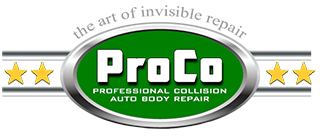Frequently Asked Questions
While every repair is custom tailored to the individual and vehicle, many of the same questions commonly arise. These are some of the more frequent questions asked:
What is an “Approved Shop” or “Preferred Shop” that my insurance company mentions?
Many insurance carriers have established streamlined agreements with larger, corporately owned body shop chains throughout the nation to reduce their costs when repairing a policy holder’s vehicle. Oftentimes these contracted agreements include reduced rates for the insurance carrier, reduced parts prices, and bonuses for body shops that complete record volumes of repairs. Often these agreements ensure a cost effective repair for the insurance company and increased sales at a large chain of repair shops.
Can insurance carriers or adjusters make me use a repair shop that is provided from a network of “approved” shops?
It is illegal for an insurance carrier to require you to use a repair shop that they have “approved”, or even have the vehicle repaired at all (unless the vehicle has a lien or loan against it). The approved repair facilities are often partnered with the insurance companies to drive sales and decrease costs to the insurer. These programs may expedite repairs but will often forget that you are the real customer in the repair process! Carefully selecting a repair facility that you are comfortable with, and has provided you with the assurance and proof of prior work, is paramount to ensuring a quality repair.
Does the insurance company have to pay even if I don’t get the vehicle repaired?
Yes, insurance companies are required to pay you for damages incurred in an accident. Failing to utilize your insurance for the repair process can be extremely risky. Insurance companies are not required to make payments for subsequent, compound, or hidden damage later found from an accident if a good faith repair had never been attempted. Oftentimes additional hidden damage can be found during the repair process. The insurance companies are only responsible to pay for these additional damages, once the repairs have begun.
Why is the insurance company only offering aftermarket replacement parts in my estimate for my damaged vehicle?
Insurance carriers are required only to repair your vehicle to pre-accident condition. In the case of late-model vehicles the original equipment manufacturer (OEM) parts are premium quality and priced accordingly. Through the years of a vehicles operation the original parts sustain reasonable wear and incur a diminished value. Replacement with a new OEM part would provide the vehicle a “betterment” or a better-than, pre-accident condition repair. Therefore an aftermarket part of lower quality and price is utilized to more closely match the diminished value of a part being replaced. The thresholds of choice between OEM and aftermarket are often determined by value and condition of vehicle along with adjuster judgment.
